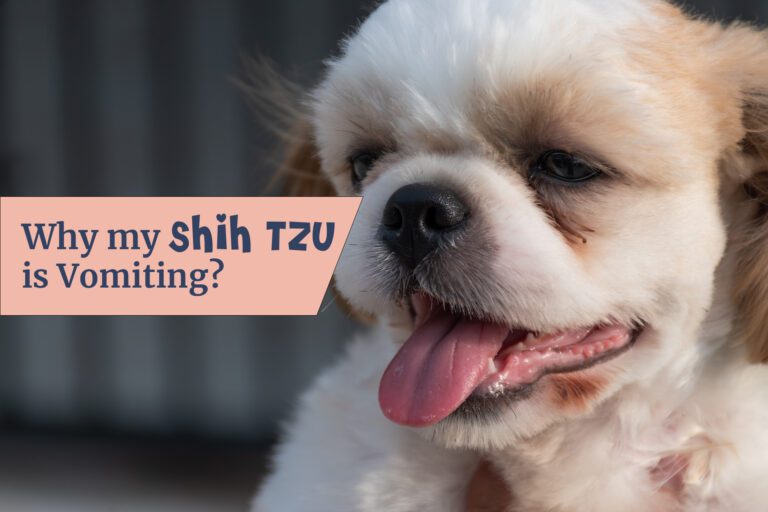Are Shih Tzus Long-Lived Compared to Other Small Breeds?
When choosing a small dog breed, many pet lovers ask an important question: How long will my furry friend live? Small breeds are often known for their longevity, but within this category, some breeds stand out more than others.
One breed that consistently gets attention for its long life and lovable personality is the Shih Tzu. But are Shih Tzus long-lived compared to other small breeds like Chihuahuas, Toy Poodles, or Yorkies? That’s exactly what we’re here to explore.
In this article, we’ll break down how long Shih Tzus typically live, how they compare to other small breeds, and what makes them a strong contender in the race for a long and healthy life.
Average Lifespan of a Shih Tzu
Shih Tzus typically live between 10 and 16 years, with many reaching the 13-year mark quite comfortably. With exceptional care, some have been reported to live as long as 20 to 23 years.
What contributes to this impressive range?
- Their small size reduces the wear and tear on joints and organs.
- Shih Tzus are bred as companion dogs, meaning they thrive in low-stress environments.
- Their genetic makeup is relatively stable when bred responsibly.
In short, they start off strong when it comes to longevity.
Lifespan of Other Popular Small Dog Breeds
Let’s put the Shih Tzu lifespan into perspective by comparing it with some other popular small breeds:
| Breed | Average Lifespan | Notable Longevity Traits |
| Shih Tzu | 10–16 years | Calm, sturdy, adaptable |
| Chihuahua | 12–20 years | Extremely small, low health risk |
| Toy Poodle | 12–18 years | Highly intelligent, low stress |
| Pomeranian | 12–16 years | Alert and active, generally healthy |
| Yorkshire Terrier | 11–15 years | Energetic but fragile, needs care |
| Maltese | 12–15 years | Gentle and affectionate |
| French Bulldog | 10–12 years | Shorter due to brachycephalic issues |
As shown, Shih Tzus hold their own, especially when compared to breeds with similar lifestyles and sizes.
Why Do Shih Tzus Live Long Lives?
Stable Genetics
Shih Tzus come from a well-maintained genetic line when bred responsibly. They aren’t overbred to extremes like some toy breeds, which helps minimize inherited health problems.
Companion Nature and Low-Stress Lifestyle
These dogs aren’t built for hunting or high-performance tasks. They’re bred to sit in your lap and be your friend — which leads to fewer injuries and less wear on their bodies.
Manageable Activity Levels
They don’t need intense exercise, just regular short walks and indoor play. This keeps their joints healthier for longer without the wear and tear that more active dogs face.
Health Risks and How Shih Tzus Compare
Like all breeds, Shih Tzus have health risks, but these are generally manageable with proper care.
Shih Tzu Health Risks
- Brachycephalic syndrome (due to their flat face)
- Eye problems (dry eye, cataracts)
- Dental issues (common in many small breeds)
- Joint and back problems if overweight or overexerted
How They Compare
- Chihuahuas tend to have dental issues and heart murmurs
- Yorkies can suffer from tracheal collapse and liver shunts
- Toy Poodles are prone to epilepsy and eye disorders
- French Bulldogs face serious breathing issues and tend to have the shortest lifespan of the bunch
Shih Tzus land somewhere in the middle. They do have vulnerabilities but nothing that responsible ownership can’t manage.
How to Maximize a Shih Tzu’s Lifespan
If you want your Shih Tzu to be one of the rare few to make it to 20+, here’s what you can do:
Prioritize Nutrition
Commit to Regular Veterinary Visits
- Annual check-ups
- Early screenings for joint, eye, and dental issues
Stay on Top of Grooming and Hygiene
- Regular grooming reduces skin and coat issues
- Daily tooth brushing helps avoid costly dental disease
Provide Mental and Physical Stimulation
Real-Life Longevity Stories
Some Shih Tzus have made headlines (or internet fame) for their age:
- Max from Florida lived to 23 years with a simple diet, annual checkups, and lots of lap time.
- Luna in the UK reached 21 and was said to love slow walks and homemade meals.
These may be rare, but they remind us of what’s possible when care and love are part of a Shih Tzu’s everyday life.
Conclusion
So, are Shih Tzus long-lived compared to other small breeds? The answer is a resounding yes. They may not always top the chart like Chihuahuas, but they consistently rank among the most long-lived and resilient small breeds.
With manageable energy levels, a peaceful temperament, and strong genetics, the Shih Tzu is a fantastic companion for those looking for a dog with a long life expectancy. When given the right care, these adorable lapdogs can offer over a decade of companionship, and in some cases, push well past that. Whether you’re already a Shih Tzu owner or considering one, you’re making a wise choice if longevity is a priority.
FAQs
Are Shih Tzus one of the longest-living dog breeds?
Yes, Shih Tzus consistently rank among the longest-living small breeds with lifespans of 10–16 years or more.
How does the Shih Tzu’s lifespan compare to a Chihuahua?
Chihuahuas may live slightly longer on average (up to 20 years), but Shih Tzus are not far behind and often live well into their teens.
What shortens a Shih Tzu’s lifespan?
Poor diet, lack of exercise, neglecting dental care, and untreated health conditions can reduce lifespan.
Can a Shih Tzu live over 20 years?
Yes, it’s rare but possible. Proper care and genetics play a big role.
Is a Shih Tzu a good choice if I want a long-term companion?
Absolutely. With proper care, Shih Tzus offer long, loving companionship and adapt well to many lifestyles.









